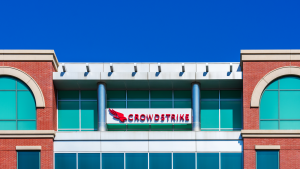Around the middle of last month, the market finally began demonstrating conspicuous signs of weakness. Then the fallout that erupted in early August confirmed what some analysts worried about: the market was getting overstretched due to blisteringly hot euphoria, particularly in the technology space. Not surprisingly, it was some of the world’s top innovators that absorbed the biggest declines.
Nevertheless, it wasn’t just the tech sector. Global stability concerns – along with the threat of geopolitical flashpoints – have contributed to poor investor sentiment. Still, market participants with a long-term view may be able to pick up some compelling discounts. Below are possible stocks to buy after the selloff.
Broadcom (AVGO)

Semiconductor juggernaut Broadcom (NASDAQ:AVGO) is still up almost 37% since the start of the year. That goes to show you its utter domination along with the euphoria in the technology space. Thanks to the company’s relevancies in artificial intelligence (AI), machine learning and data science, AVGO stock has attracted plenty of attention. Therefore, its loss of 13% in the trailing month may be considered a discounted opportunity.
Sure, it’s true that AVGO stock appears incredibly overpriced because of its sales multiple. Right now, it trades hands at 15.64x trailing-year revenue. In the prior year, the average multiple sat at 12.37x. Even more telling, in the half-year period ended April 30, 2024, the average price-to-sales ratio only reached 14.33x. So, Broadcom isn’t exactly objectively cheap.
Still, it qualifies as one of the stocks to buy after the selloff because of analysts’ projections. In fiscal 2024, experts are modeling revenue to hit $7.1 billion. If so, that would be up 43.6% from last year’s tally of $32.79 billion. And in fiscal 2025, sales could rise again to $54.92 billion. That will drive the projected multiple down, making AVGO look more attractive than it currently does.
Microsoft (MSFT)

Another tech firm that doesn’t exactly look undervalued, Microsoft (NASDAQ:MSFT) is still up more than 9% since the start of the year. However, MSFT qualifies as one of the stocks to buy after the selloff due to broader market weakness. In the trailing month, the equity lost almost 11%. What’s more, a massive system outage caused many Windows-integrated computers to fail. That didn’t help matters.
Fundamentally, though, MSFT stock appears to be a long-term buy. No, the outage didn’t enhance Microsoft’s reputation. However, it’s not as if this one incident will cause people and enterprises to jump ship to a competing system. Windows, for better or for worse, has become almost synonymous with computing networks.
Right now, MSFT stock trades at 12.37x trailing-year sales. I’m not going to sit here and say that’s objectively low. However, it does appear contextually low considering that in the prior year, the metric stood at just under 13x.
More importantly, analysts are looking at fiscal 2025 (calendar 2024) revenue to hit $255.41 billion, up 13.8% from the prior year. In fiscal 2026, sales may again soar to $291.87 billion. That makes the valuation more attractive than it initially appears.
CrowdStrike (CRWD)

So let’s get into perhaps the biggest and most controversial idea for stocks to buy after the selloff. In any other circumstance, cybersecurity specialist CrowdStrike (NASDAQ:CRWD) would be an unquestionable buy. However, a software update related to its endpoint security platform, called Falcon, recently failed. That sparked a severe fallout which impacted several companies and institutions, including air travel.
To be fair, CrowdStrike got in front of the problem quickly, taking responsibility and offering a fix. Unfortunately, investors were ticked off and sent CRWD stock tumbling down. Viscerally, I understand the frustration. CrowdStrike again is a cybersecurity specialist: it should be preventing network problems, not causing them.
Still, I must look at this situation from a long-term perspective. CRWD makes an excellent case for stocks to buy after the selloff because cybercrimes are only rising in frequency and intensity. So, the underlying business is incredibly relevant – and will continue to be relevant.
Look at the financials. In the six months ended April 30, 2024, the average price-to-sales ratio stood at 24x. That means the market will easily accept such a multiple when circumstances normalize. Trading at 18x sales right now, CrowdStrike is a buy.
Delta Air Lines (DAL)

One of the entities that suffered under the CrowdStrike software update was Delta Air Lines (NYSE:DAL). Unfortunately, the issue represented almost a perfect storm, disrupting many businesses and functionalities, including the cancellation of flights. DAL stock was on the receiving end of the pain. As a result, it lost almost 13% of equity value.
That’s not to say that we should pin all the blame on CrowdStrike. Certainly, Delta started to look a bit shaky from around mid-May. Concerns have started to rise about the resilience of the consumer economy, especially as it centers on travel demand. Therefore, many investors decided to abandon ship on DAL stock on anticipation of coming pain.
However, just last month, CNBC reported that air travel demand has been breaking records. That hasn’t always translated to airliner profits. Still, the underlying context appears robust. I don’t think that such a paradigm can shift so rapidly.
Right now, DAL stock trades at 0.42x sales. In the past year, the metric stood at 0.48x. Combined with solid growth anticipated for both fiscal 2024 and 2025, Delta appears to be one of the stocks to buy after the selloff.
Airbnb (ABNB)

Staying on the theme of travel, Airbnb (NASDAQ:ABNB) is another victim of the recent market malaise. The lodging marketplace provider saw its shares stumble badly over the past several days. It started off the year auspiciously. Now, shares are down more than 14% year-to-date. You can blame the severe fallout of 21% in the trailing month.
Why did ABNB stock suffer so much? Part of it was that it gave a mixed earnings report in the second quarter. While the company beat on revenue, it posted earnings per share of 79 cents. Analysts were looking for 84 cents. However, it was a soft guidance for the current quarter that seemed to rattle nerves. Combined with broader market fears, the sensible action appeared to be to sell.
To be sure, I haven’t been the biggest cheerleader of Airbnb. However, every company has a price. In this case, the valuation seems to have sunk too low. Right now, shares trade hands at 7.16x revenue. The thing is, in the past year, the market readily accepted an average multiple of 10.09x.
Given the popularity of the brand, ABNB may be one of the stocks to buy after the selloff.
Apple Hospitality (APLE)

I don’t mean to belabor the travel theme. However, investors seeking contrarian opportunities in stocks to buy after the selloff may consider Apple Hospitality (NYSE:APLE). For one thing, the company is a real estate investment trust. That means it’s obligated to reward its shareholders. In Apple’s case, that reward comes in the form of a forward dividend yield of 6.83%. That right there might be worth the price of admission.
Second, the business itself could be attractive. It’s quite possible that the so-called public money is overreacting to the forward implications of the consumer economy as it relates to travel. With the smart money appearing to bet on Airbnb options, it wouldn’t be surprising to see some of that demand filter down to APLE.
Now, Apple isn’t exactly the sexiest name in the lodging space. However, it gets the job done. In the past year since Q2, the REIT posted an average EPS of 22 cents. This figure beat the collective consensus view of 20 cents, yielding an earnings surprise of 14.68%.
Analysts are also projecting robust EPS expansion in fiscal 2024 combined with solid growth. At the very least, you’ll want to have APLE on your watchlist.
Alarm.com (ALRM)

For my final idea for stocks to buy after the selloff, I’m going with my most contentious with Alarm.com (NASDAQ:ALRM). Since the start of the year, ALRM stock dipped roughly 4%. However, in the trailing month, shares have stumbled almost 8%. A lot of that pain arrived last Friday, when the equity lost about 7%.
Still, the red ink might be harsh considering the relevance of the company. Alarm provides cloud-based services for remote control, home automation and alarm monitoring services.
Cynically, this framework should benefit Alarm’s core business. Therefore, the current fallout may be an opportunity. Right now, shares trade hands at 3.74x sales. In the past year, the metric averaged 3.95x. Not only that, it wasn’t that long ago that multiple exceeded 4x.
Analysts are also looking at solid expansion of EPS and sales for both fiscal 2024 and 2025. It’s well worth keeping on your radar.
On the date of publication, Josh Enomoto did not have (either directly or indirectly) any positions in the securities mentioned in this article. The opinions expressed in this article are those of the writer, subject to the InvestorPlace.com Publishing Guidelines.
On the date of publication, the responsible editor did not have (either directly or indirectly) any positions in the securities mentioned in this article.
A former senior business analyst for Sony Electronics, Josh Enomoto has helped broker major contracts with Fortune Global 500 companies. Over the past several years, he has delivered unique, critical insights for the investment markets, as well as various other industries including legal, construction management, and healthcare. Tweet him at @EnomotoMedia.
